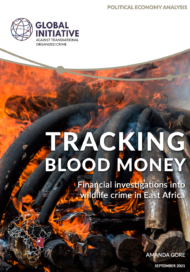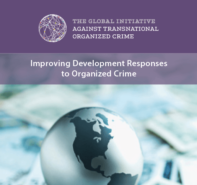Posted on 04 Oct 2013
“If we win the war against environmental crime only to discover there are no tigers left, then that will be a hollow victory.”
So said John M. Sellar, former Chief of Law Enforcement at CITES, at the launch of the Global Initiative on September 19th in NY. Environmental crime, due to its time-sensitive nature, is a priority for the Global Initiative. We are reaching a tipping point where we can will no longer be able recover from the irreparable damage we are doing to the planet.
Listen to a podcast of Julian Rademeyer, journalist and author of the best-selling book “Killing for Profit – Exposing the illegal rhino horn trade” explain the Global Initiative, its relevance for environmental crime and the blood ivory trade.
IRIN also picked up our discussion on Environmental Crime from the launch of the Global Initiative.
In a story entitled “Environmental Crimes increasingly linked to violence, insecurity“, the article emphasizes the point made by the Global Initiative in our draft report “The Global Response to Transnational Organized Environmental Crime” and its recommendations the way that lucrative environmental crimes are fueling conflict, instability and violence. The Global Initiative has made environmental crime a priority, as it is time critical: the tipping point is almost here, where however we respond, the damage being done to species, the atmosphere and oceans will be impossible to undo.
Organized environmental crime is known to pose a multi-layered threat to human security, yet it has long been treated as a low priority by law enforcers, seen as a fluffy “green” issue that belongs in the domain of environmentalists.
But due to a variety of factors – including its escalation over the past decade, its links to terrorist activities, the rising value of environmental contraband and the clear lack of success among those trying to stem the tide – these crimes are inching their way up the to-do lists of law enforcers, politicians and policymakers.
The recent terror attack on the popular Westgate shopping mall in Nairobi, Kenya, has placed environmental crimes like the ivory and rhino horn trade under increased scrutiny. Al-Shabab, the Islamist militant group that has taken credit for the attack, is widely believed to fund as much as 40 percent of its activities from elephant poaching, or the “blood ivory” trade. The Lord’s Resistance Army, a brutal rebel group active in the Democratic Republic of Congo and the Central African Republic, is also known to be funded through elephant poaching.
… read more on IRIN: http://www.irinnews.org/report/98872/environmental-crimes-increasingly-linked-to-violence-insecurity



